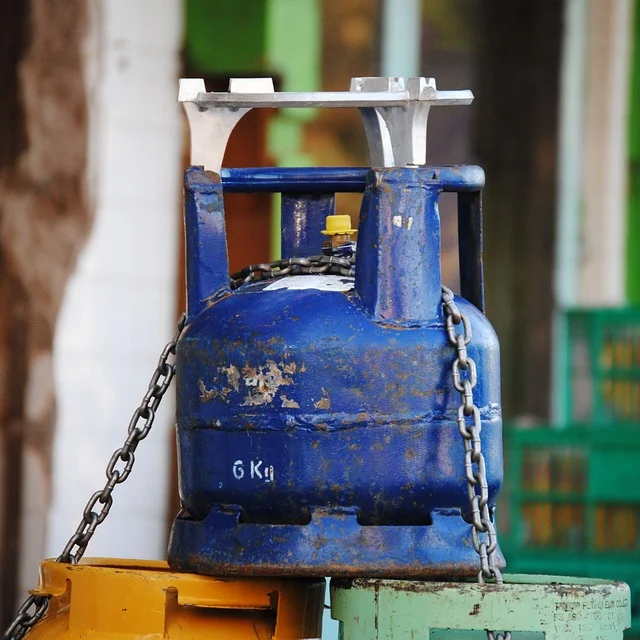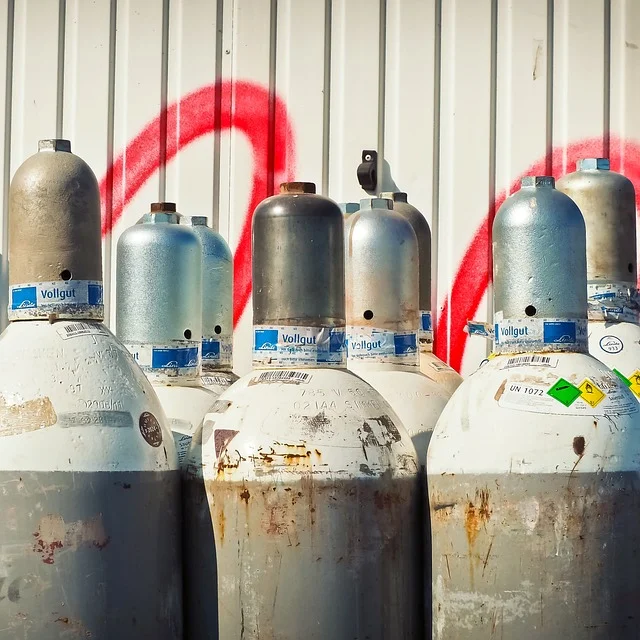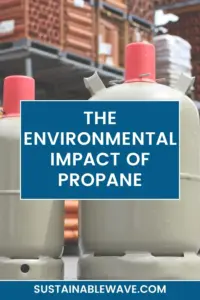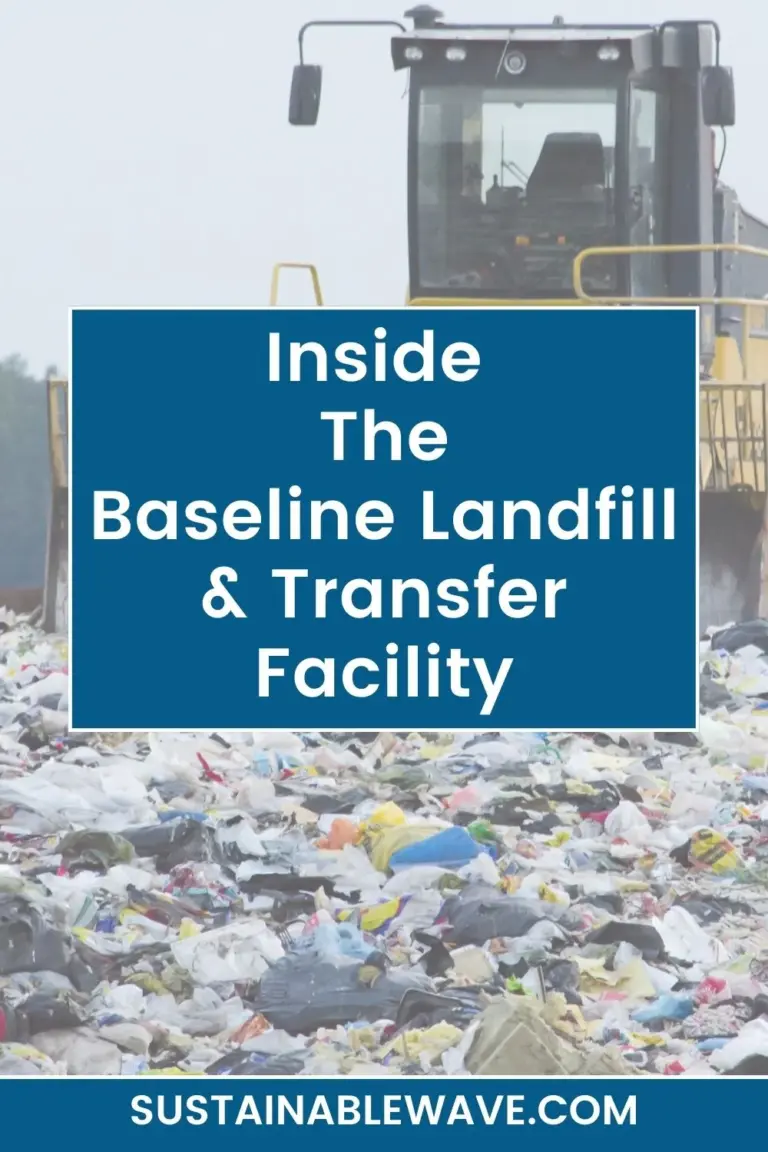Propane, fondly termed as the “clean-burning fuel,” has its roots steeped in history. Tracing back, it was discovered in the late 19th century, offering a new perspective on energy. As we fast forward to today, propane powers up barbecues, heaters, and even some vehicles. But, what shadows does it cast on Mother Earth?
Propane is a cleaner-burning fossil fuel that emits fewer pollutants than many alternatives. However, its extraction, transportation, and combustion still pose environmental challenges, contributing to greenhouse gas emissions and resource depletion.
Let’s try to dig a bit deeper into the topic of the environmental impact of propane, and learn how it affects the world around us.
What Environmental Impact Actually Means

“Environmental impact” refers to the effect or influence that human activities, industries, or products have on the natural world. This encompasses changes to ecosystems, air and water quality, wildlife, and human health.
These impacts can be positive, like reforestation efforts, or negative, such as pollution from industrial processes.
Often, the term is used in the context of assessing the potential consequences of development projects, ensuring they are sustainable and do not cause undue harm to the environment.
Understanding and mitigating environmental impacts is crucial for maintaining a balanced, healthy planet for future generations.
The Environmental Impact of Propane
Propane, often celebrated as a clean-burning fuel, does have environmental implications that need to be closely examined:
- Greenhouse Gas Emissions: Propane combustion results in the emission of greenhouse gases. Although its emissions are significantly less than that of many other fossil fuels, it does contribute to global warming. When burned, propane releases carbon dioxide, though in lower amounts compared to fuels like coal or gasoline.
- Resource Extraction and Propane Production: Extracting propane, predominantly sourced from natural gas through the refining process, carries environmental repercussions. This includes potential habitat disruption, water usage, and even chemical contamination if the extraction isn’t managed responsibly. Moreover, the fracking methods sometimes employed can pose risks of groundwater contamination and induce low-level seismic activity.
- Transportation and Storage: Moving propane from its extraction site to end-users requires extensive transportation, often involving long-distance pipelines, trucks, or ships. Each mode carries its own set of environmental impacts, from potential spills during transit to the energy used in transportation. Storage, on the other hand, demands infrastructure that, if not maintained, can lead to leaks, thus releasing propane into the atmosphere.
- Comparison to Other Fuels: When juxtaposed with other fuels, propane’s environmental record often seems relatively better, especially in terms of emissions. For instance, when used for heating, propane emits nearly half as much carbon dioxide as heating oil. However, renewable energy sources still surpass propane in terms of environmental friendliness.
Benefits of Propane for the Environment

Despite the concerns, propane does bring several environmental benefits to the table:
- Lower Carbon Footprint: One of the prime benefits of propane is its lower carbon content compared to many other fossil fuels. This means it emits less carbon dioxide when combusted. In fact, propane emits 60% less carbon monoxide than gasoline and almost half as much CO2 as coal when used for heating.
- Efficient Energy Conversion: The energy yield of propane is commendable. It offers a high energy output per unit, ensuring that less fuel is required for the same amount of work. This higher efficiency means that overall consumption and associated environmental impacts can be reduced.
- Minimal Release of Pollutants: Propane combustion results in fewer pollutants. Besides lower CO2 emissions, burning propane also releases fewer particulate matters, sulfur oxides, and nitrogen oxides compared to many other fuels. This is why many urban areas with strict air quality regulations promote propane as an alternative fuel.
- Safety in Spills: Unlike oil or gasoline, propane spills don’t directly result in ground or water contamination. Being a gas at atmospheric pressure, it dissipates into the air, reducing the immediate hazard to the environment. However, this does not negate the need for safe handling and storage procedures.
- Supports Transition to Greener Alternatives: While not a renewable resource, propane can act as a transitional fuel, bridging the gap between heavy fossil fuel dependence and a future powered by renewable energy. Given its cleaner burn and efficient energy output, propane can be a stepping stone, reducing our carbon footprint while renewable energy technologies continue to develop and become more widely accessible.
Concerns Regarding Propane
While propane boasts several advantages, there are also concerns surrounding its use:
- Dependency on Fossil Fuels: At its core, propane is a non-renewable fossil fuel. Even though it’s cleaner than many of its counterparts, reliance on propane still ties us to finite and depleting resources.
- Potential for Explosions: Propane is flammable. Stored under pressure, any leak in its storage unit can lead to an explosion if it comes into contact with an ignition source. This makes safety protocols imperative for both storage and transportation.
- Price Volatility: Just like other fossil fuels, propane prices can be unpredictable. They often fluctuate based on supply and demand, geopolitical factors, and natural disasters that may impact production or distribution.
- Infrastructure Needs: Adopting propane on a large scale demands significant infrastructure in terms of storage, distribution, and refilling stations. Setting up this infrastructure comes with its own environmental and economic costs.
Propane Vs. Other Energy Sources
A comparative analysis often provides clarity on choosing the right energy source:
- Propane Vs. Natural Gas: Both are hydrocarbon gases, but propane packs more energy per unit volume than natural gas. While natural gas is primarily methane and is piped directly to homes, propane, derived from natural gas processing and petroleum refining, requires storage in tanks.
- Propane Vs. Gasoline: For vehicles, propane, also known as autogas when used as a motor fuel, burns cleaner than gasoline, emitting fewer pollutants and greenhouse gases. Additionally, propane-fueled vehicles might have lower maintenance costs over time.
- Propane Vs. Electricity: Propane is often favored for its efficiency. Electric heaters, for instance, may be 100% efficient at the point of use, but when considering the entire production and distribution system, much energy is lost. In contrast, propane heaters can be over 90% efficient, often providing warmth faster than electric heaters.
- Propane Vs. Renewables: Renewable sources like solar and wind are the cleanest energy forms, with negligible emissions during use. While propane has a lower carbon footprint than many fossil fuels, it can’t match the near-zero emissions of renewables. However, propane can serve as a reliable backup or supplementary energy source when renewables aren’t feasible or available.
Final Words

Propane occupies an interesting space in the energy landscape. Its attributes make it an appealing alternative to dirtier fossil fuels, particularly in applications where renewables might not yet be viable.
However, while it presents a more environmentally friendly option in many cases, it’s not without its concerns. The key is to strike a balance, leveraging propane’s benefits while working towards a future where clean, renewable energy sources dominate the scene.
As we continue our transition towards a greener future, propane can play a pivotal role, bridging the gap between traditional fossil fuels and the promise of renewable energy.
I’m Thomas, the owner of SustainableWave. Passionately promoting a sustainable planet. With experience in various eco-roles, I’ll share green tips, sustainability hacks, and personal eco-journeys on my blog.






